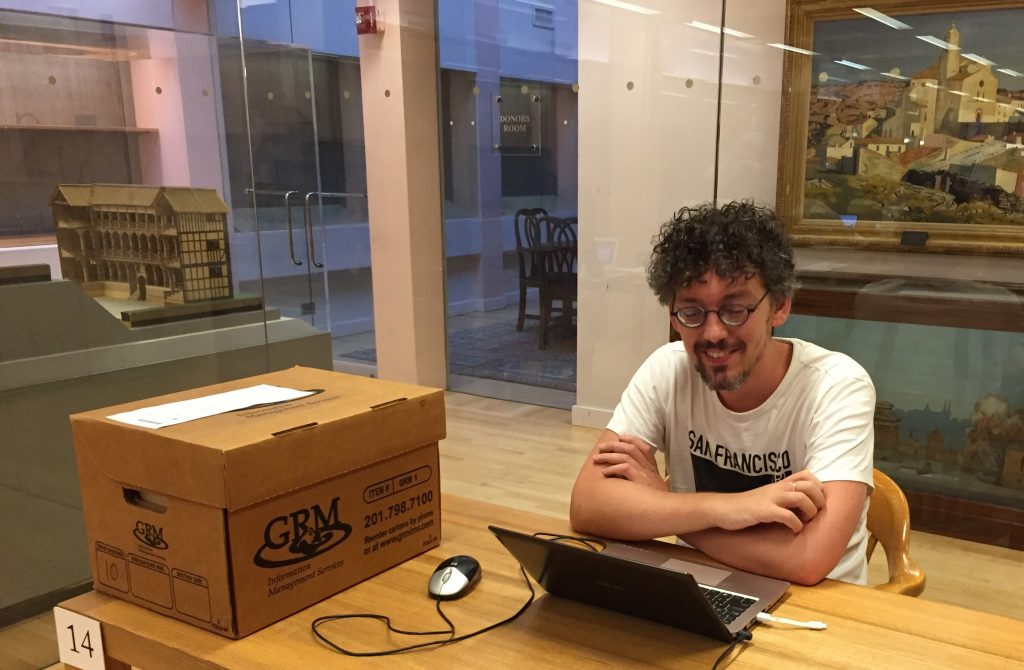
The Rare Book and Manuscript Library achieved a milestone this summer, sponsoring its first group of international visiting scholars in connection with the opening of the Ford Foundation International Fellowships Program Records. The six scholars, visiting from institutions around the world, have spent the summer conducting intensive research using the paper and digital components of the Ford IFP Archive. They are an interdisciplinary group, with interests including development studies, international education, arts and culture, and the history of philanthropy. The visiting scholars’ findings will contribute to the growing body of scholarship on the impact of educational fellowship programs such as Ford IFP on sustainable international development.
The scholars’ names and project titles are as follows:
- Tran Nu Mai Thy (Endicott College), “IFP Vision through the Lens of Vietnamese Alumni: An Analysis of Theses”
- Budi Waluyo (Lehigh University), “Measuring National Community Development Returns from International Scholarship Programs”
- Wim de Jong (Radboud University Nijmegen, Netherlands), “Philanthropy, Community and Democracy. The Ford Foundation’s Domestic and Foreign Education Programs, 1949-2016”
- Oluwafunmilayo Para-Mallam (National Institute for Policy & Strategic Studies, Nigeria), “Tackling Gender-Based Violence in Select African Countries”
- Rajendran Thangavelu Govender (Kwazulu-Natal Department of Arts and Culture, South Africa) “From Dark to Enlightened Continent—An Analytical Study of the Research of the Ford Foundation IFP Africa Alumni from 2001 to 2013”
- Nagah Sayed-Ahmed, independent social science researcher and activist, “Promoting Social Justice in Egypt: the Impact of the Ford IFP”

The Ford Foundation International Fellowships Program, supported by the largest single grant in the history of the Ford Foundation, took place between 2001 and 2012. During this time, it sponsored graduate education for over 4,300 Fellows from developing countries who lacked systematic access to higher education, but were committed to furthering social justice and sustainable development in their communities. The Ford IFP Archive was transferred to the Rare Book and Manuscript Library in 2012. It contains approximately 500 linear feet of paper records and 3.6 terabytes of digital files documenting the planning and administration of the Ford IFP, as well as the selection, placement, and monitoring of Fellows studying at universities on five continents. The archive is currently open to researchers, with processing anticipated to be completed by the end of the year. The digital archive’s components are also available online at the Ford IFP Archive’s website.
The visiting scholars will present their findings at a symposium, “Education, Development, and Social Justice: the Legacy of the Ford Foundation International Fellowships Program,” at Columbia’s Faculty House on September 8. Registration for interested attendees is available online via the Columbia University Libraries Events Calendar.
Submitted by Celeste Brewer, Ford IFP Project Archivist